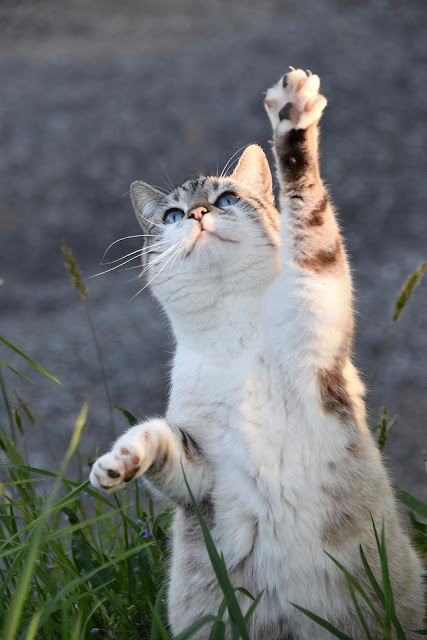Are you frustrated with your cat's persistent spraying around your home? This common yet bothersome behavior can turn your living space into a smelly, stained mess. But don't worry – there are effective solutions to tackle this issue. By understanding why your cat sprays and implementing some straightforward strategies, you can restore peace and cleanliness to your home. Read on to discover expert tips and actionable steps to stop your cat's spraying habit once and for all.
If your cat backs up to a door or another object in your house, lifts its tail, and releases urine, you’re facing a common issue known as spraying. This behavior is particularly prevalent among indoor cats. While it can be quite frustrating, there are effective ways to address and resolve the problem.
Firstly, it's important to understand that spraying is not related to a litter box issue. Instead, it’s a marking behavior. Cat urine used in spraying contains pheromones, which are chemicals animals use for communication. These pheromones function similarly to human fingerprints, helping cats identify each other.
When a cat sprays, it is marking its territory. This behavior signals to other cats that the area belongs to him. Although this can be irritating, reacting with anger or raising your voice at your cat will not help and can actually exacerbate the spraying.
Cats in heat are especially drawn to the scent of urine. For these cats, spraying acts as an invitation for mating. This can often lead to a new litter of kittens in a few months. However, cats may also spray during encounters with other cats or when they are stressed, not just when they are in heat.
While spraying is a form of communication for cats, it creates a foul smell for humans. Fortunately, many cats do most of their spraying outdoors. But if you have an indoor cat, this behavior can become problematic. If you notice your cat spraying indoors, it’s crucial to take immediate action.
One of the most effective ways to stop spraying is to have your cat neutered or spayed, depending on its sex. Most male cats will stop spraying shortly after being neutered. If you prefer not to neuter or spay your cat, especially if you plan to breed it in the future, you should explore other alternatives.
Consulting your veterinarian is a wise step. They can provide advice and potentially solve the issue without surgery. There might be an underlying medical condition causing the spraying, which your vet can diagnose and treat. Addressing spraying promptly is essential because cat urine is pungent and can cause stains throughout your home.
By understanding the reasons behind your cat’s spraying and taking the appropriate steps, you can reduce and eventually eliminate this behavior, ensuring a cleaner and more pleasant home environment.
Keywords:
- Cat spraying solutions
- Stop cat spraying
- Indoor cat spraying
- Cat marking territory
- Neutering to stop spraying
- Spaying to prevent spraying
- Cat pheromones
- Stress-related cat spraying
- Vet advice for cat spraying
- Cat urine removal tips

